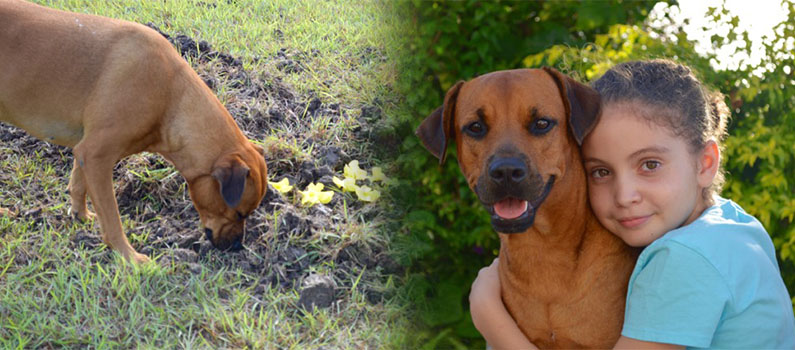For many of us dog-owners, our dogs aren’t just dogs! They are a much-loved part of the family who provide us with companionship and love us unconditionally. They are an important part of our daily routines and our lives. When they are sick or get hurt, it can be heart-wrenching. When they die, we can feel a real sense of loss.
We should recognize that the death of the family dog can be especially difficult for young children. In some cases, it may be their first experience with death. Learning to cope with their departure can take time.
When a human dies, their family and friends come together to mourn their loss. They host a funeral or a memorial, and special tributes are recited. As the years pass, they are often remembered on special anniversaries or birthdays. Friends and family may look at pictures and videos from time to time and reminisce with each other. These are all ways to help ease the pain and keep their memories alive. When recovering from the loss of a human relative or friend, an adult may take time off from work, spend time with close friends and family or even take a trip.

Research shows that the loss of a much-loved dog can cause grief that is comparable to the loss of a human friend or family member. However, we don’t generally celebrate a dog’s life or mourn openly as we might with the death of a human. Interestingly, social media has provided an outlet for people to express their grief when they lose their pet. Many dog-lovers post photos of their dogs with messages describing their anguish when their dog has passed away. Dog-loving friends will respond with messages of sympathy and support. It’s an avenue to express grief and find closure.
The loss of the family dog can be especially traumatic for children. It may even be their first experience with death. They may feel frightened that others they love may be taken from them as well. Experts recommend being gentle but honest about the death of a pet rather than making up a story saying, for example, that the pet ran away! They say that making up a story will create greater confusion and pain in the long run. Instead, even though it’s a delicate situation, it’s recommended to be honest and even share with the child that you are feeling very upset. Experts seem to agree that showing your sadness may let children know it’s ok to be sad about the loss of their beloved dog.
 Online research offers may offer thoughtful suggestions to help them cope.
Online research offers may offer thoughtful suggestions to help them cope.
A nice idea is to create a memory book using photos you may have taken over the years with your phone or photos you posted on social media. This can be a form of closure for you and your child in the sad loss of a pet. Visiting an animal shelter or sanctuary to donate in the name of your pet or volunteering time to walk or care for the shelter pets can also be helpful. In my personal experience burying my dogs in my own backyard was a way to lessen the loss.
People that don’t own dogs won’t understand the pain a dog lover feels when they lose their pet. You have a right to grieve for your pet and be sad. Talk to your child openly about it. Cherish the many beautiful memories and realize that with time, managing the pain will be easier!
Other Articles of Interest:


Recent Comments